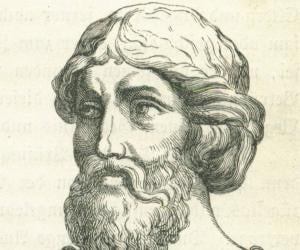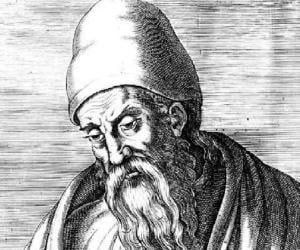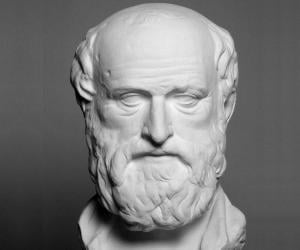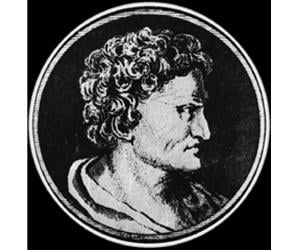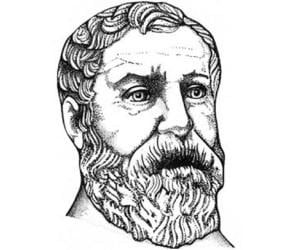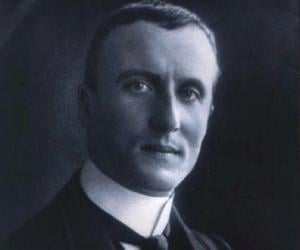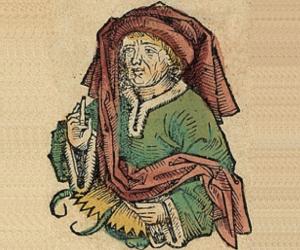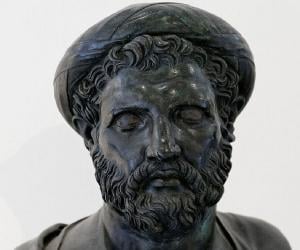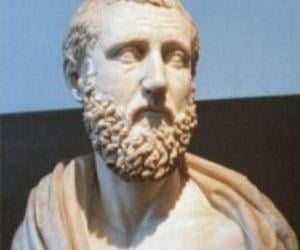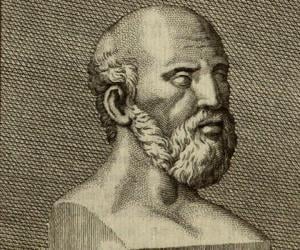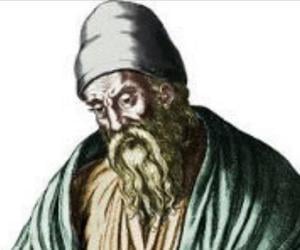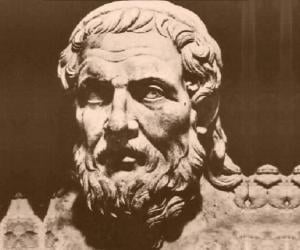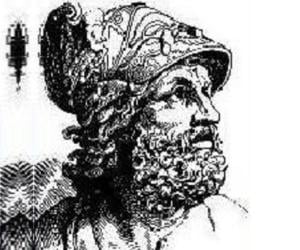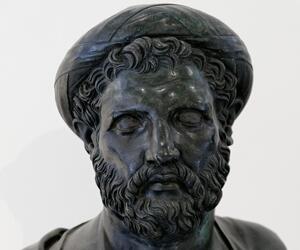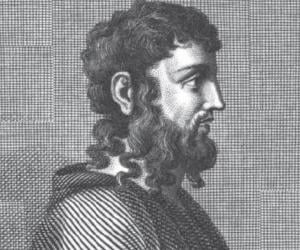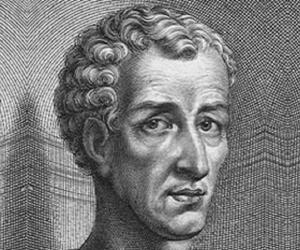1
Pythagoras
(Greek Philosopher, Mathematician and Founder of Pythagoreanism)
Birthdate: 0570 BC
Birthplace: Samos, Greece
Died: 0495 BC
Pythagoras of Samos was an ancient Greek philosopher and polymath, known for founding Pythagoreanism. He established a school in Croton, Italy, where initiates followed an ascetic lifestyle and swore to secrecy. Pythagoras made significant contributions to mathematics and science, credited with discovering the Pythagorean theorem, Pythagorean tuning, and more. His teachings on the transmigration of souls and musica universalis were influential. Pythagoras's ideas influenced philosophers like Plato and had a lasting impact on Western thought, science, art, and esotericism throughout history.
